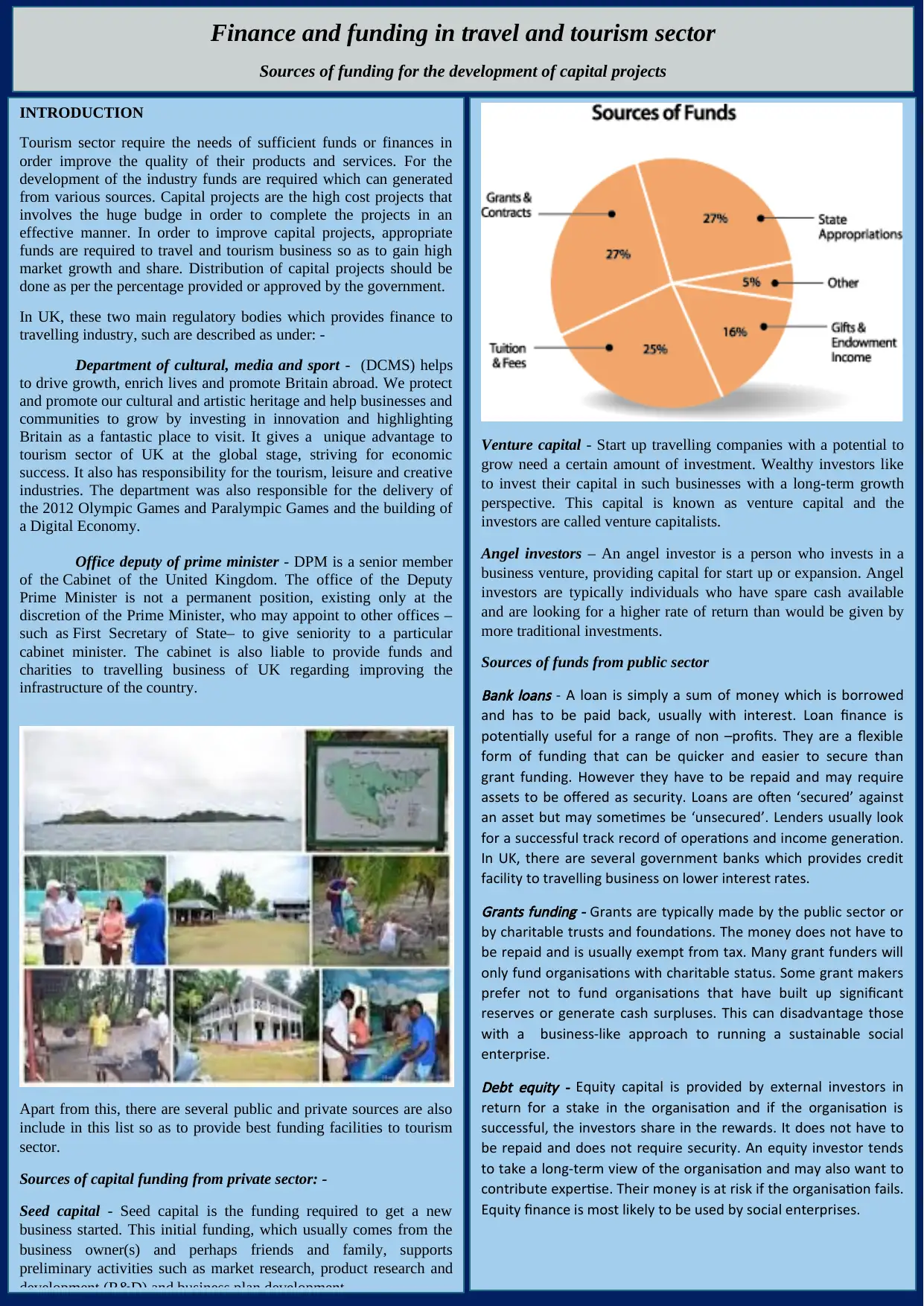Finance and Funding: Developing Capital Projects in Travel & Tourism
VerifiedAdded on 2023/03/22
|2
|830
|40
Essay
AI Summary
This essay delves into the crucial aspect of finance and funding within the travel and tourism sector, specifically focusing on the development of capital projects. It identifies and discusses various sources of funding, both from the public and private sectors, that are essential for enhancing the quality of products and services in the industry. The essay highlights the role of regulatory bodies in the UK, such as the Department of Cultural, Media and Sport (DCMS) and the Office of the Deputy Prime Minister, in providing financial support and promoting growth. Furthermore, it examines venture capital, angel investors, bank loans, and grant funding as key sources from the public sector, while also exploring seed capital and debt equity from the private sector. These funding mechanisms are vital for start-up companies and established businesses alike, ensuring the sustainable development and market competitiveness of the travel and tourism industry.
1 out of 2








![[object Object]](/_next/static/media/star-bottom.7253800d.svg)